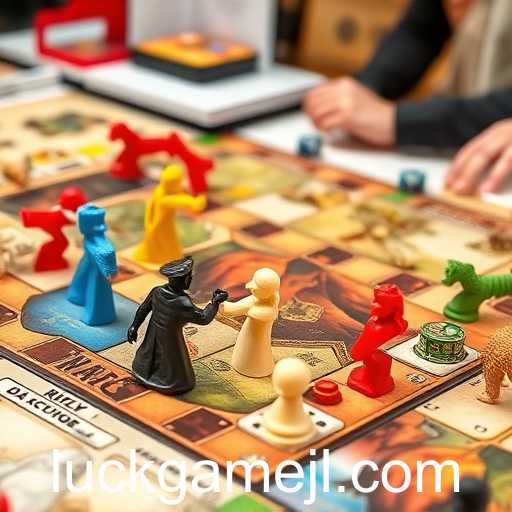An in-depth look at the board games category with a special focus on how luck influences gameplay.
Board games have been a cornerstone of entertainment and strategy for centuries, captivating players with their blend of skill and chance. Whether it’s family gatherings around the dining table or intense gaming nights with friends, these games offer an engaging experience that can be both stimulating and relaxing. Within the broad category of board games, the element of luck serves as a unique equalizer, often blurring the lines between calculated strategy and pure fortune.
The concept of 'luckgame' frequently emerges in discussions about board games, referring to titles where chance plays a significant role in determining the outcome. While some purists might argue that luck diminishes the competitive aspect of board games, it undeniably adds a layer of unpredictability and excitement that many players find appealing.
Consider classics like Monopoly and Snakes and Ladders, where dice rolls can significantly alter the course of the game. Despite having strategic components, these games inherently rely on luck, making each session an adventure. The thrill of landing on a coveted property or narrowly avoiding bankruptcy can create memorable moments, fueled as much by happenstance as by clever decision-making.
On the other hand, games like Settlers of Catan strike a balance between strategy and luck. Players must make calculated choices about resource management and negotiation, but the roll of the dice still dictates the availability of resources. This combination allows both novices and seasoned gamers to enjoy a fun and competitive atmosphere.
In modern times, the popularity of board games has surged, with many games integrating luck into their mechanics to varying degrees. This trend has led to the creation of games that appeal to a wide audience, providing opportunities for different skill levels and preferences.
In essence, the interplay of luck and strategy in board games mirrors real-life scenarios, where both careful planning and unexpected events shape outcomes. As the 'luckgame' keyword highlights, this dynamic remains a fundamental part of why board games continue to capture the imagination of players worldwide, offering a diverse range of experiences that are as unpredictable as they are entertaining.




